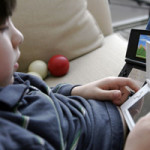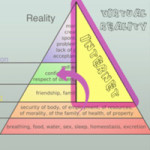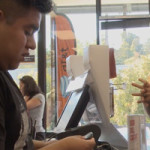At Palmy Boys’
As we expect more from technology, do we expect less from each other? Sherry Turkle studies how our devices and online personas are redefining human connection and communication — and asks us to think deeply about the new kinds of connection we want to have….. read more.
Over the past decade our families have been swept up by a screen tsunami. Children and adults are walking around with screens in our bags and backpacks, our pockets, and our palms. We are always turned on, and neuroscientists are discovering that it is rewiring our brains – and the new neural connections are not functioning as well as the old ones….. read more.
A new study has found that kids want the rules to run both ways, and that many adolescents would like their parents to stop texting while driving or posting their photos without their permission….. read more.
Too much at the worst possible age can have lifetime consequences. Screen time is an inescapable reality of modern childhood, with kids of every age spending hours upon hours in front of iPads, smartphones and televisions…. read more.
A new study is the first of its kind to link nighttime instant messaging habits of teenagers to sleep health and school performance. Media use among children of all ages is increasing exponentially; studies have found that children ages 8 to 18 use electronic devices approximately seven-and-a-half hours daily…. read more.
For the first time, scientists will be examining the effects of mobile phone emissions on sleep and brain activity in children and teenagers. Researchers recently began this study at Illawarra Health and Medical Research Institute at Australia’s University of Wollongong. The research investigates the effects of RF EMF (radiofrequency electromagnetic field) exposure from mobile phones on the sleep, brain patterns, and cognitive function of youth ages 10-18…. read more.
How virtual reality has made social isolation more seductive than ever before… read more.
Children can’t resist the pull of electronic devices, and parents don’t know what to do about it…… read more.
The challenges of raising kids born into the age of the internet…. read more.
Despite the impression one might get from the media, handwriting is not dead, and may well be a more effective methods for students to take down notes than using a laptop. “Research shows that when you only use a laptop to take notes, you don’t absorb new materials as well, largely because typing notes encourages verbatim, mindless transcription.” …. read more.
Concerns are growing around underage gambling in New Zealand amid reports teenagers are placing bets through online games. Reports of kids winning as much as $2000 on online games come as the Department of Internal Affairs (DIA) says it is looking at how to address the problem…. read more.
Harmful digital communications can take many forms. Learn more about the new Act and how to deal with online harassment… read more.
Researchers find people who meet friends and family at least three times a week far less like to have depression than those who have only ‘virtual contact’… read more.
Cyber-security expert gives advice to students – some good messages here both both parents and young men…. read more.














